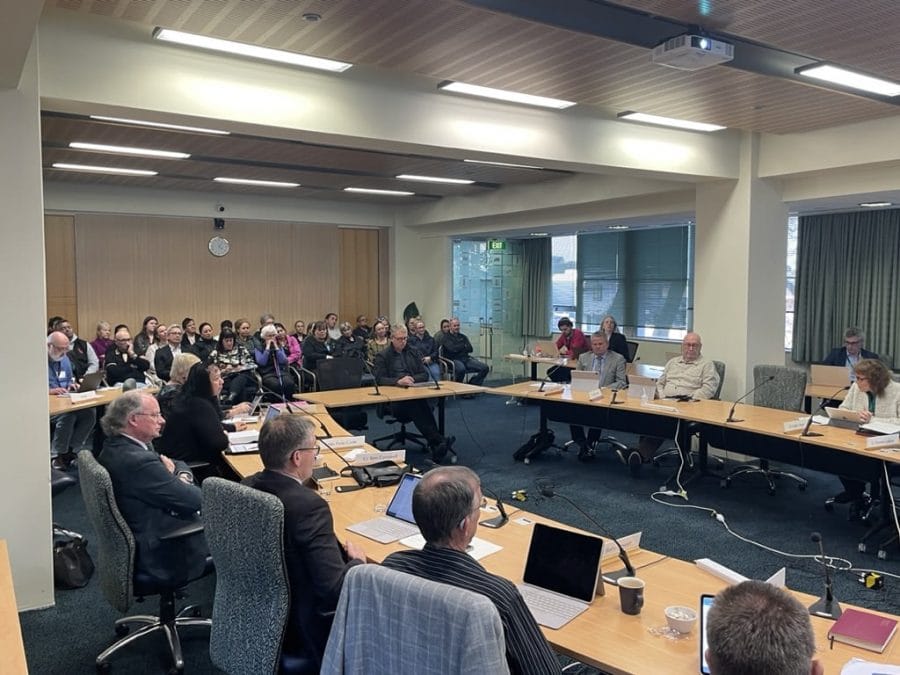
An attempt by the Mayor to change Invercargill history and adopt a bilingual approach to buildings around the city met with opposition by local iwi.
Nobby Clark’s notice of motion to have a more co-ordinated approach where both te reo and English presented equally on buildings, was labelled divisive to the community by local iwi. Related: Council Buildings At End Of Life: Amalgamation Review Could Change Everything
Several iwi spoke passionately in the public gallery at the council’s meeting yesterday, including former Deputy Mayor Toni Biddle.
Current Deputy Mayor Tom Campbell supported the motion and said the fundamental principle of the paper was to extend the visibility of te reo in the city, more than it has ever been before.
“I think we should all support this initiative. And frankly I will go so far as to say that we should recognise your role as Mayor in bringing this to the table for the first time in our city’s history.”
The issue was with the protocol and how the paper should be implemented, and that was by far the more contentious part, he said.
Mayor Clark said that council has the right to take a bilingual approach to naming and renaming buildings, to promote the use of te reo.
But he believed that the entire historical heritage needed to be taken into consideration, including a combination of European/Scottish and mana whenua.
Mana whenua representative Evelyn Cook defended iwi by saying that the motion was not only dividing the community, it was dividing everyone around the council table.
Mana whenua representative Pania Coote said she was disappointed when she read the paper from Mayor Clark.
“It is sad in these current times when we are reclaiming our language and our culture.
“I hope we can revisit and reshape this notice of motion… what about concerns from Maori? There is no partnership with Maori in this at all.”
I know that we don’t have a vote here today, and I’m really hoping that the councillors take our concerns onboard.”
Cr Darren Ludlow said he thought it was unfortunate that the discussion came at a time when things were emotionally charged.
“We need to focus on this and I think we are heading in the right direction. I hope that we are creating a city that embraces te reo Maori.”
Council eventually agreed to develop a new paper that supports a bilingual approach in consultation with local runaka.

